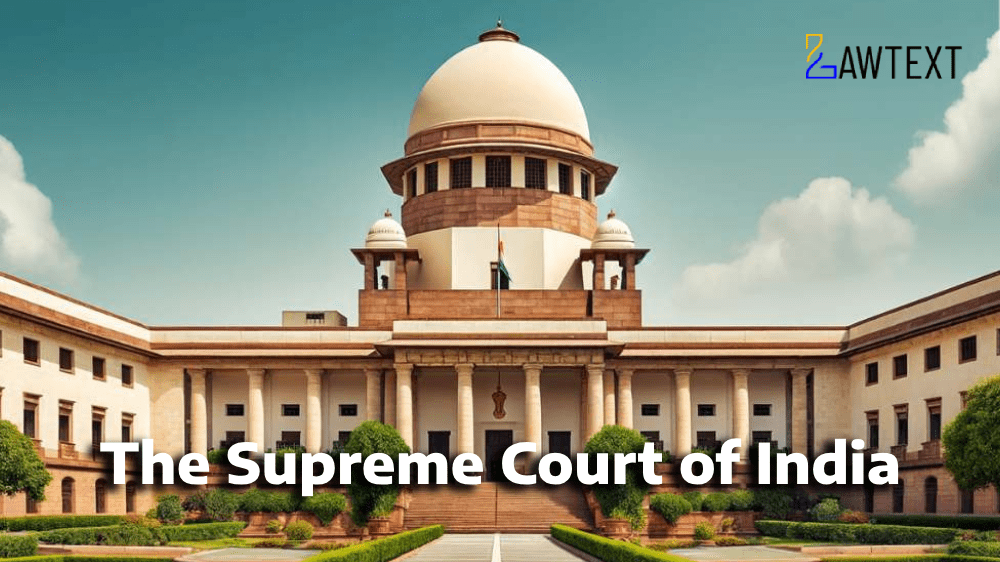

Supreme Court Exercises Powers Under Article 142 of the Constitution of India to Dissolve Marriage, Quash Litigations, and Direct Release of Impounded Passport
Extradition Proceedings Quashed: The Supreme Court held that the extradition proceedings were unjustified, as the appellant’s non-appearance was due to the impounding of his passport, which was beyond his control. The Court noted that personal presence is not mandatory in DV Act proceedings, which are quasi-criminal in nature. (Paras 18-22)
Marriage Dissolved on Grounds of Irretrievable Breakdown: The Court exercised its powers under Article 142 of the Constitution of India to dissolve the marriage, citing the short duration of cohabitation, prolonged separation, and multiple litigations as evidence of irretrievable breakdown. (Paras 23-37)
Permanent Alimony Awarded: The Court awarded Rs. 25 lakhs as permanent alimony to the respondent, considering her financial status and the standard of living during the marriage. (Paras 38-41)
Passport to be Released:
The Court held that the impounding of the appellant’s passport was illegal, as it was done without following the principles of natural justice. The passport was ordered to be released within one week. (Paras 42-46)
Major Acts and Sections:
Constitution of India (COI), Article 142 – Power of the Supreme Court to do complete justice.
Code of Criminal Procedure, 1973 (CrPC), Section 125 – Maintenance for wives, children, and parents.
Indian Penal Code, 1860 (IPC), Sections 498A, 307, 506, 406, 323, 324, 341, 342, 379, 403, 504, 120B – Offenses related to cruelty, assault, criminal intimidation, cheating, wrongful restraint, and conspiracy.
Protection of Women from Domestic Violence Act, 2005 (DV Act), Sections 12, 18, 19, 20, 21, 22, 26, 31, 32 – Reliefs and remedies for domestic violence.
Hindu Marriage Act, 1955 (HMA), Section 9 – Restitution of conjugal rights.
Passport Act, 1967, Sections 10, 11 – Impounding and revocation of passports.
Nature of the Litigation:
The appellant (husband) and respondent (wife) were married on 19th February 2018.
The couple cohabited for only 80 days in the USA before separation in May 2018.
Multiple criminal and civil cases were filed by both parties against each other and their family members, leading to prolonged litigation.
Who is Asking the Court and for What Remedy?
The appellant sought dissolution of marriage on the grounds of irretrievable breakdown under Article 142 of the Constitution of India.
He also challenged the extradition proceedings initiated against him and the impounding of his passport.
Reason for Filing the Case:
The appellant alleged domestic abuse and harassment by the respondent, leading to the breakdown of the marriage.
The respondent filed multiple cases against the appellant and his family members, including under Sections 498A IPC and the DV Act.
What Has Already Been Decided Until Now?
The trial court directed the initiation of extradition proceedings against the appellant for non-appearance in DV Act proceedings.
The High Court dismissed the appellant’s revision petition against the extradition order.
Whether the initiation of extradition proceedings against the appellant was justified?
Whether the marriage between the appellant and respondent had irretrievably broken down, warranting dissolution under Article 142 of the Constitution of India?
Whether the impounding of the appellant’s passport was legal?
What should be the quantum of permanent alimony to be awarded to the respondent?
Appellant’s Submissions:
The marriage lasted only 80 days, and the parties have been living separately since May 2018.
The respondent filed multiple cases against the appellant and his family members, reflecting a vindictive attitude.
The appellant offered a generous settlement, but the respondent rejected it.
The impounding of the passport was illegal and violated principles of natural justice.
Respondent’s Submissions:
The respondent alleged dowry harassment and cruelty by the appellant and his family.
She opposed the dissolution of marriage and claimed that the cases filed by her were genuine.
She argued that the appellant’s failure to appear in court justified the extradition proceedings.
Extradition Proceedings:
Personal presence is not mandatory in quasi-criminal proceedings under the DV Act. Extradition proceedings cannot be initiated for non-appearance due to circumstances beyond the party’s control. (Para 20)
Irretrievable Breakdown of Marriage:
The Supreme Court can dissolve a marriage under Article 142 of the Constitution of India if the marriage has completely broken down, and there is no possibility of reconciliation. Factors such as the duration of cohabitation, separation period, and ongoing litigations are relevant. (Paras 24-26)
Impounding of Passport:
The impounding of a passport under Section 10 of the Passport Act, 1967, must comply with the principles of natural justice. Failure to provide an opportunity to be heard renders the impounding illegal. (Paras 42-46)
Irretrievable breakdown of marriage, Article 142 Constitution of India, extradition proceedings, impounding of passport, permanent alimony, domestic violence, Section 498A IPC, DV Act, natural justice.
Citation: 2025 LawText (SC) (2) 206
Case Number: [Criminal Appeal No(s).________ of 2025 arising out of SLP (Crl.) No(s). 4297 of 2023]
Date of Decision: 2025-02-20
Case Title: Vishal Shah Versus Monalisha Gupta & Ors.
Before Judge: (Pankaj Mithal J. , Sandeep Mehta J.)
Appellant: Vishal Shah
Respondent: Monalisha Gupta & Ors.